Invisible Hands is an art exhibition which is a collaborative project between artist Alicja Rogalska and The Morning Boat in order to showcase life as a migrant worker. The exhibition is located at Jersey Art Centre in the Berni Gallery, and aims to inform viewers of the poor conditions these migrant workers are put through and how little they gain back, in terms of pay, housing and food. This topic is highly relevant as it has been a massive part of the Island’s agriculture for over 150 years, but still is an area which has not been explored or documented.

The Agri-Care Prize was created while interviewing the migrant about their working conditions and lives. The interviews were informal as they created clay potatoes to act as a symbolic representation for all migrant workers, whilst creating this they talked about what made a star worker and made a list of criteria as to how to decide who gets the prize of the potato. This is a highly important aspect of this exhibition as it reinforces how the migrant workers are forgotten about and not talked about much, reinforcing the theme of neglect. This set of rules and background is shown below, alongside the prize potato.
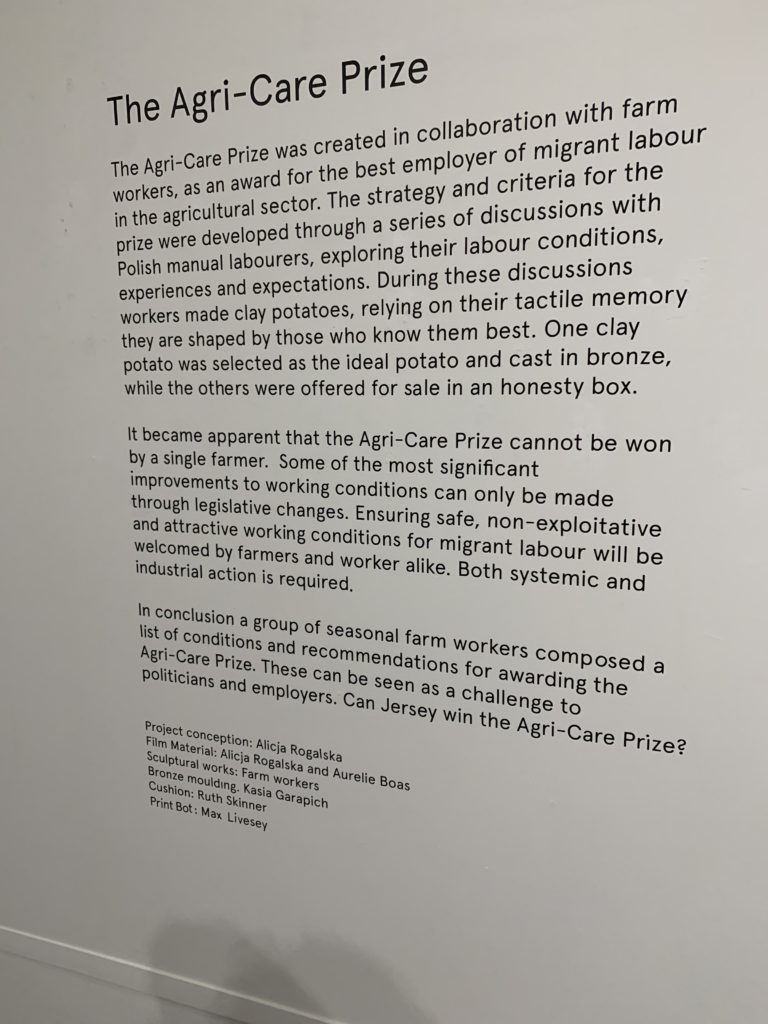
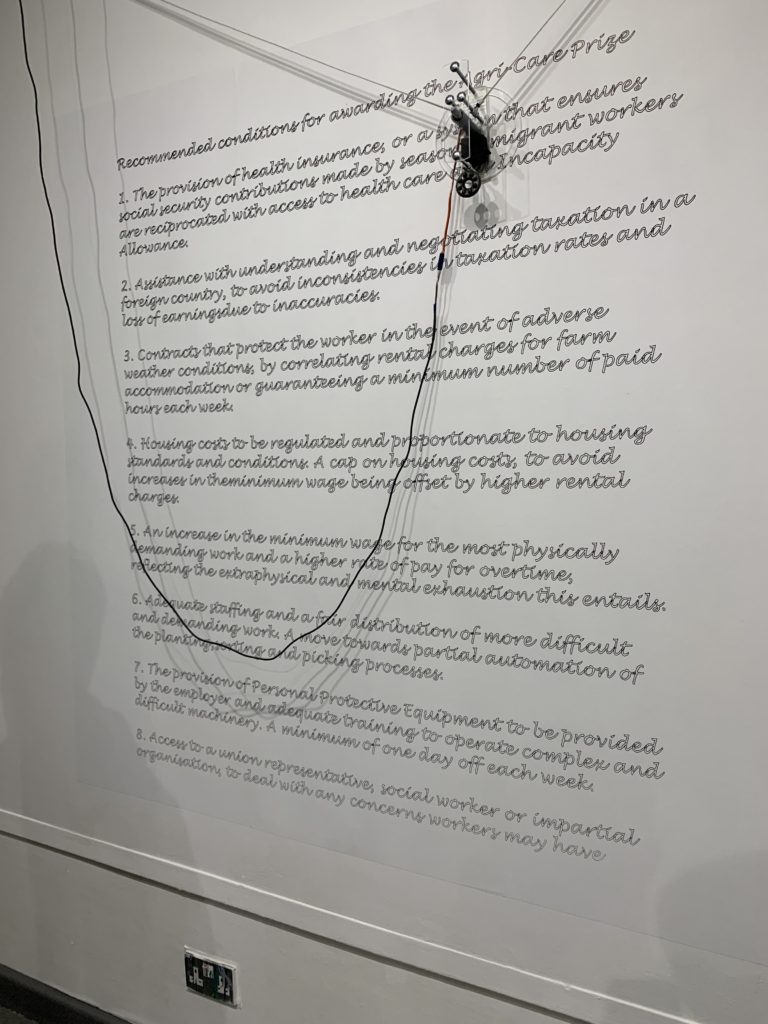
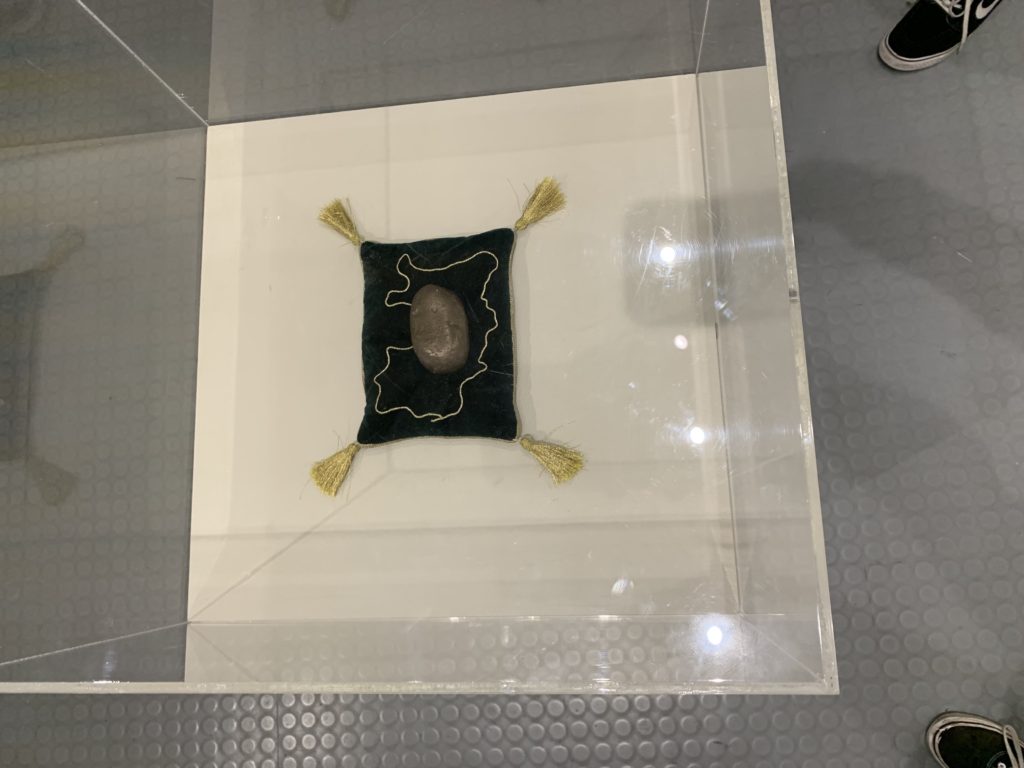
As mentioned before the migrant workers were interviewed, and this was put into a video, and was projected onto the wall. Within this video we watch these migrant workers told and create their potato out of clay with the audio of the migrant workers explaining the working conditions being played on top of this. One key element of the video is that no faces are shown, allowing the migrant workers to remain anonymous allowing them to express the issues and their personal opinion, reinforcing the title of ‘Invisible Hands’
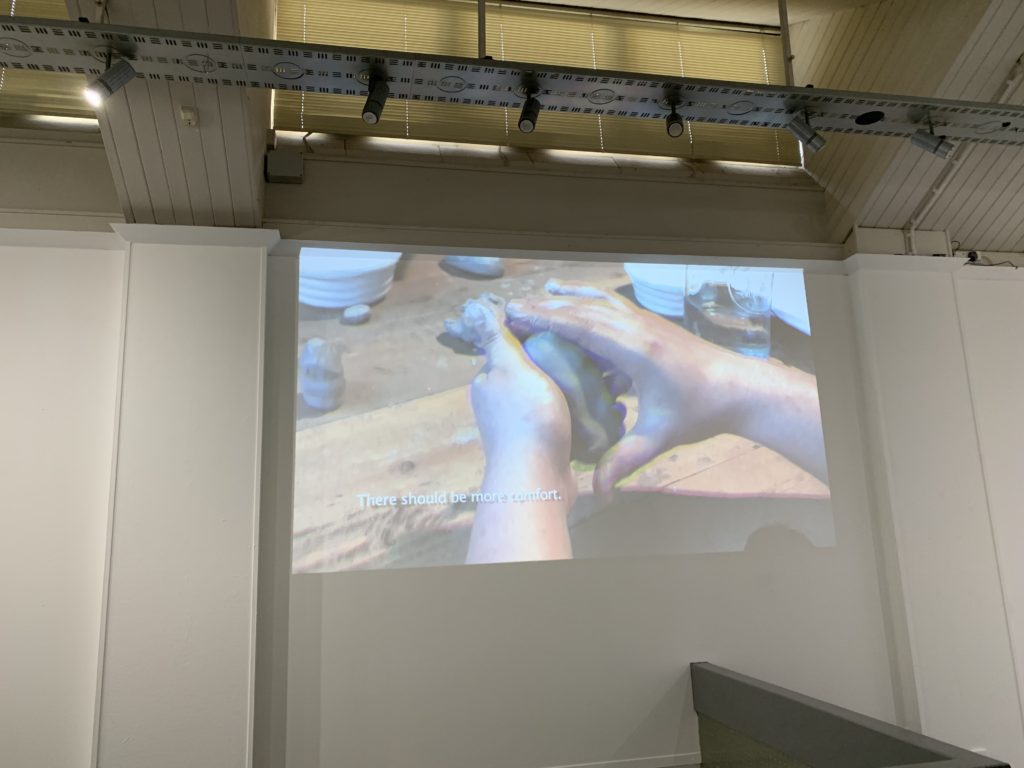
The imagery of the exhibition was all captured by the migrant workers themselves in order to accurately represent their lifestyle and working conditions. This is showcased as many images are poor quality and show poor framing techniques which makes the images authentic and allows us to truly understand the conditions that they are in. All images were enlarged and framed and displayed on the wall. After looking at some imagery one key thing that stood out was that all imagery with the subject being people, the people all seemed happy and got on with their job and life as they don’t know any better emphasising this pejorative issue within the Channel Islands.
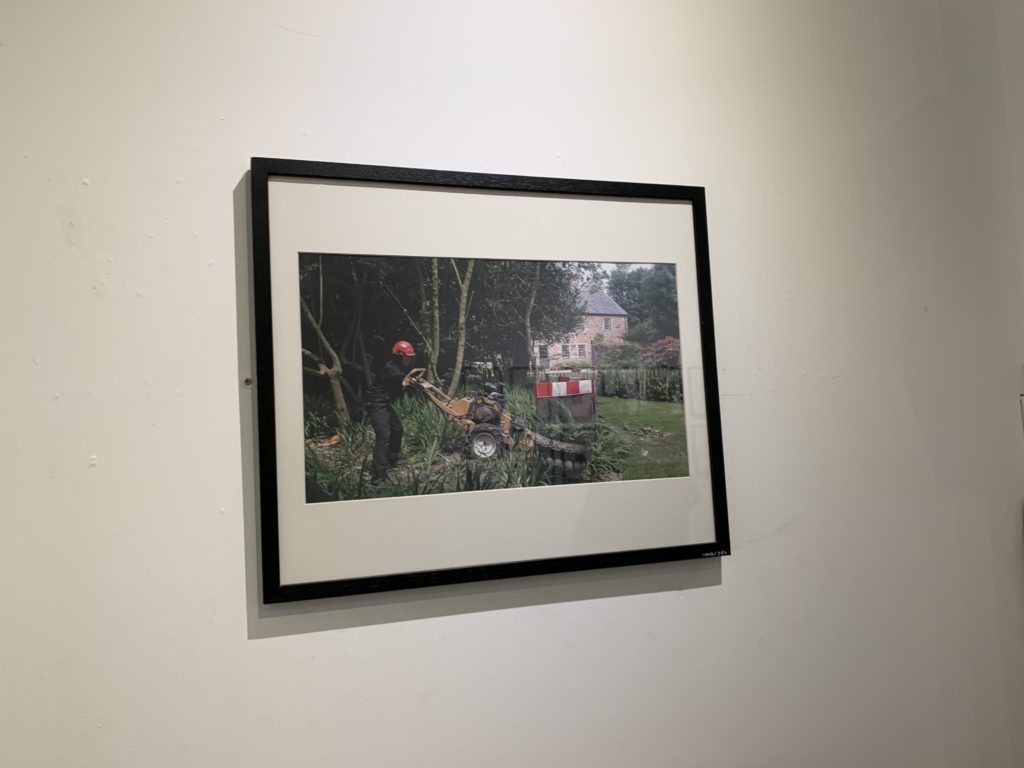
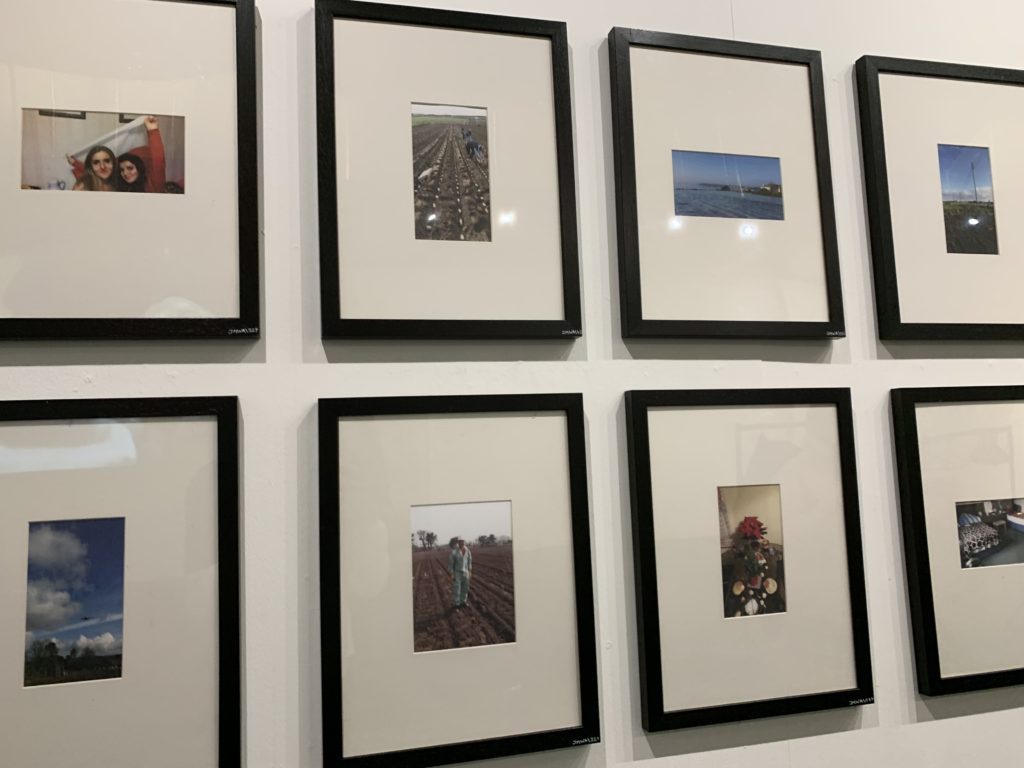
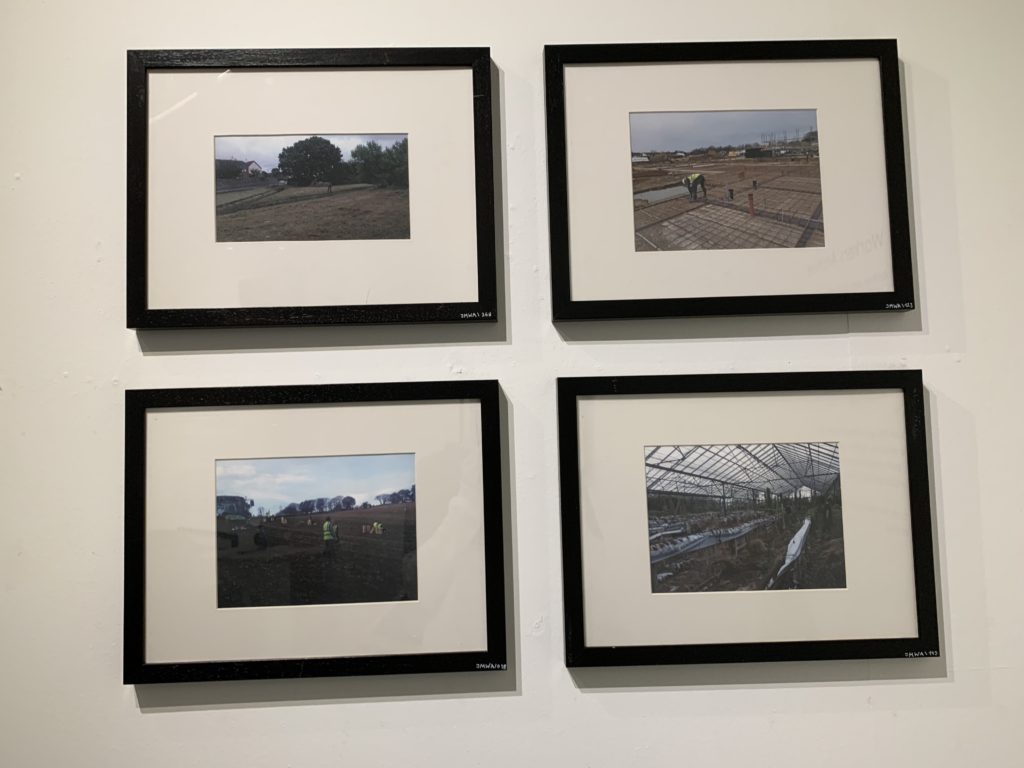
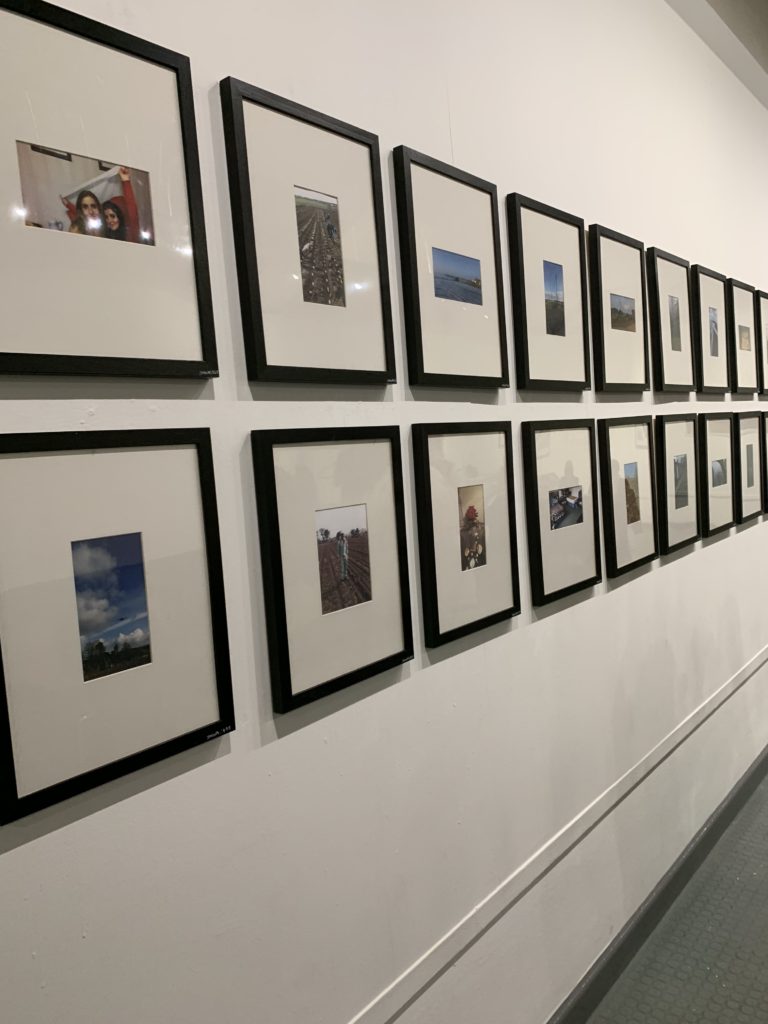
Personally, I believe this exhibition really illustrates how bad these migrant workers get it, allowing me as a viewer truly understand their working and living conditions. The work hold strong conceptual and contextual representations which makes the imagery and overall exhibition powerful in illustrating political and social issues, suggesting our government is corrupt. The authentic and naturalistic/documentary photographs produced really emphasised how real this issue is, exposing me to the issue and feeling a sense of sympathy and makes me want to help these migrant workers. The use of imagery and media has allowed me to gain further understanding of the concept and context, which has allowed me to consider using these techniques to showcase my concept and context within my personal study.
